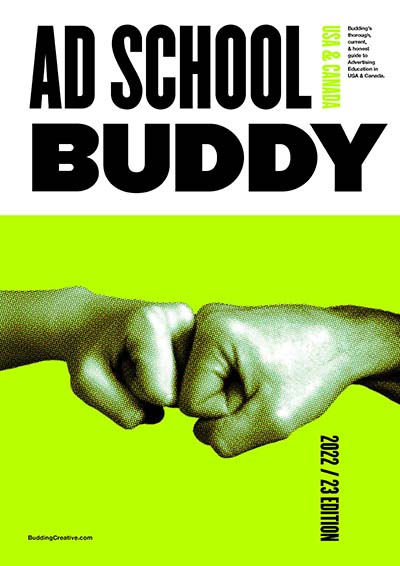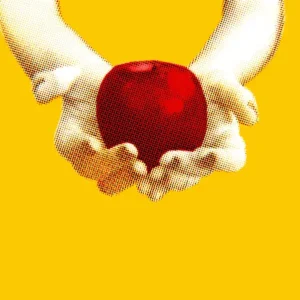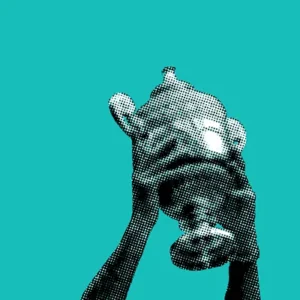Advertising recruiters: friend or foe?
It’s always nice to be approached by an advertising recruiter. It’s hard to avoid feeling a little ‘frisson’ when you realise you’ve been noticed. What, me? You like my work? Oh my goodness. How flattering. An opportunity you say? Well, of course I’ll take a look at it at least. Let’s see what you have.
Hold your horses. That’s years away.
Your first interaction with an ad recruiter is more likely to be as you’re starting out and chasing every glimmer of hope as you try to navigate your way to your first job. You’re a low value target to a recruiter. It can be hard to get a meeting, or even a reply to an email.
Maybe they’ll come good and get you your first role. But – maybe you’ll get your first role with the sweat of your own initiative and you’ll discover that you didn’t actually need them.
As you progress through your advertising career, I’d encourage you to keep this important fact in mind about recruiters: They can be useful to your career, but they aren’t strictly necessary.
Because you are ultimately responsible for your career. Not a creative recruiter.
But at some stage of your career you will inevitably have deals with a recruiter. So, let’s talk about them.
Table of Contents
You are not the client. You are the product.
A recruiter isn’t your agent. They aren’t going to cold call agencies and sing your glories because they truly believe in you and your potential. No. Follow the money. The money comes from the ad agencies. That’s the client. That’s the relationship recruiters really care about. A recruiter will not be your mentor or jungle guide.
You are a line on spreadsheet the recruiter is focused on selling so they can get their cut. The more sales they make, the more money they make. If they can get an easier sale by suggesting another creative in your place, they’ll do it in a heartbeat. If they have a lucrative sale at an agency with a dubious reputation, you bet they’ll try to talk you into taking it.
Recruiters are in the industry to earn money. Never forget it. No matter how nice they are (and they are usually super nice, very charming people).
Many like to present themselves as appointed guardians of the best creative opportunities. They like to give the impression that there are people in the industry you don’t have access to, and the recruiter is uniquely trusted by them to find creative talent.
But that’s not really the case. Sure, recruiters know which agencies are actively looking for talent, and at which level of seniority. But an opportunity is an opportunity whether or not a recruiter gets involved. If a creative director is able to hire a brilliant creative team without having to pay a recruiters fee, of course they will.
The more senior you are, the more valuable you are.
A recruiter works on commission. The bigger the sale, the bigger the commission. This means the recruiter will make as much money from one mid-weight creative as they do from two or three juniors. And for an ECD? That’s worth at least as much as ten juniors, if not more.
So where do you think they’re going to expend the most effort?
As a junior creative, you’re ‘a quick sale’.
A low effort way to keep the trade flow ticking over. There is more to it though. Better recruiters understand that junior creatives sometimes grow into ECDs. As you grow in the industry, they’ll do their best to make sure they are the first name you’ll call when you’re looking around.
So as a junior creative, it’s important that you understand your place. Any time a recruiter gives you is valuable and should be openly appreciated. Take some time to ask smart questions, but be aware of the recruiters time and don’t overstay your welcome. Be polite, warm and funny. Show the recruiter that you are approachable and have great interview skills. Do everything you can to put your best foot forward.
Make a great impression. And then move on to your other job-hunting initiatives. It would be great if the recruiter comes through with a brilliant opportunity, but don’t count on it. If you don’t prove to be a ‘quick sale’, they will quickly move on and try to make their fee from other people.
That’s totally fine. It happens. Don’t get butt-hurt by it. Move on. Recruiters are not anointed guardians of every job in the industry. Your personality and portfolio just happened to be a poor fit with the agencies this recruiter works with.
You don’t owe a recruiter anything.
If the stars magically align and, as many junior creatives do, you get hired in your creative role thanks to an advertising recruiter, say thank you and promise to stay in touch. Maybe even send a bottle of wine and a personal note.
Manners and gratitude are always appreciated, and simple gestures can help you stay in their mind when future opportunities arise. Be friendly. But don’t start believing that you have a friend.
The recruiter has been paid and they are moving on to the next sale.
They might like to maintain the illusion that they ‘gave’ you this opportunity. Don’t buy it. You gave yourself the opportunity with your years of hard work and tenacity. They simply did a bit of matchmaking and swooped in to clip the ticket when the rubber hit the road.
If a different recruiter calls, take the call happily. If you see an opportunity to get into a better agency without using a recruiter, don’t hesitate.
You were never the recruiters ‘client’. You were their product for a brief moment of time. You don’t owe them anything more than your politeness.
Recruiters know what buttons to push
Talking to creatives and agencies is the only thing they do. They become very good at it. And they develop a sales patter that can be compelling. Designed to motivate you to trust that they have your best interests at heart.
Just like any salesperson, they emphasise the positives and minimise the negatives.
They have well rehearsed bullet points for whomever they are talking to. No matter their level of seniority. So think about the recruiters motivations every time you take a call. And if the role on offer fits the next step on the career path you are setting out on, great. Go for it.
But it is incredibly important to always do your own research as well. Not every opportunity that a recruiter approaches you with is going to be the right step for you to take. Sometimes they call with an opportunity to step up. Other times they’re trying to make a commission out of a moderately well-paid dead-end.
Sometimes a recruiter will try to place you where you don’t want to go
It’s easy to get creatives to show up for an interview at Droga5 or Weiden + Kennedy. It’s more difficult to talk someone into working at a giant agency on an uninspiring client.
But giant agencies are brilliant sources of revenue to recruiters. Lots of creatives, lots of recurring positions to fill.
Recruiters will do their best to spice up the opportunity. Perhaps they’ll say it’s a chance to develop into an Associate Creative Director role. Or they’ll push the credentials of a new hire who is ‘coming in to turn things around’.
And indeed, these things might be true. But then again they might not be. So I repeat again how important it is to do your own research about every opportunity an advertising recruiter brings you.
Who knows. Perhaps you’re at the stage of your career where this role might be the right thing for you. Great. But if the role or the agency don’t feel right, don’t allow yourself to be convinced. Politely decline with the cliche ‘I feel that I still have a lot to contribute to the agency I’m at right now’ and move on.
But never underestimate just how much a recruiter wants to make money. If there is a pile of money in it for them, you bet they’ll try to get you in pretty much anywhere.
The recruiter only placed me a year ago. Why are they calling again?
If you’re doing well in a new role, you can expect a recruiter to reach out again in a year or two. “Just to see how you’re settling in”. Oh, and by the way if you have itchy feet it might be worth having a longer conversation.
Here’s a little secret you probably don’t know about recruiters. Once they have placed a candidate into an agency, there is usually a clause in the contract that if the creative voluntarily leaves within a certain time period – perhaps it’s six or twelve months – then the recruiter must return half their fee to the agency.
The advertising recruiter doesn’t want to backstab the agency.
They do pay the bills after all. But after a year or two, if you’ve made some great new work and the agency has given good feedback on your attitude and output, they might quietly try to tap the well again. It is in the ad recruiter’s interest for people to move agencies regularly, and they’ll do their best to encourage you to move on.
If the opportunity is interesting – sure, listen to them. But be cautious about leaving an agency too quickly. If your CV shows you bouncing around from agency to agency too much, many creative director will see that as a red flag.
The recruiters database is one of the justifiable reasons creatives care about awards.
Particularly recent awards. In fact, as you progress in the industry you’ll find that recruiters begin their conversations talking about which awards you have recently won. Although these days, work going viral on social media holds just as much cachet.
When a recruiter is approached by an agency, their first response will be to look at the creatives they already have on their database. They’ll pull out four or five creatives they think will fulfil the brief. Creatives with appropriate work history, with relevant work in different media, and so on.
Awards are easy shorthand both to a recruiter and creative director that your career trajectory is on the up.
It’s a box to tick on the recruiter’s spreadsheet. And it might just get you to the top of the list when a creative director considers candidates worth bringing in for an interview.
And that’s great. But always remember – if you have the initiative and chutzpah to take charge of your own career, you might not have to wait for that recruiters call. If you’ve just won an award and you want to leverage it to get into an agency you’ve been dreaming of, get in contact yourself. Do it in a creative way, put yourself out there.
It always amazes me how creatives will sweat all hours of the day to promote brands and products they might not like themselves but won’t put the same effort into promoting themselves.
A recruiter is not responsible for your career. You are.
If you take just one thing away from this article, make sure it is this. A creative recruiter is not your agent or career manager. They are matchmakers trying to fill a position.
Perhaps the opportunity will suit you. Maybe it won’t. But the opportunities a recruiter promotes are not the only opportunities out there. Those other opportunities are only available to those with either networking skills, a bunch of chutzpah, incredible luck, or a combination of the three.
Say, for example, you are working in a pharmaceutical agency, and you want your next move to be to a mainstream agency.
Sorry. You’ll have to do it yourself. A recruiter won’t touch you.
It’s too hard. You’re asking them to sell an apple to a customer looking for an orange.
Remember, an advertising recruiter is motivated to make an easy sale. If you fit neatly under the banner of ‘pharmaceutical creative’, then that’s what advertising recruiters (and honestly, creative directors too) will see you as. You’ll need to provide compelling evidence to help them see you with new eyes.
Note: I don’t wish to diminish pharmaceutical creatives. It’s simply a subset of the ad world that is notoriously difficult to move out of. Great work and interesting careers can be built in pharmaceutical if that’s your thing.
The best strategy is to go get your dream job yourself.
Always keep your portfolio up to date and evolving.
Proactively make yourself known to the creative directors at the agencies you dream of joining. Perhaps you might create spec ads for one of their clients to introduce yourself (and not necessarily for their ‘golden’ client – showing original thinking for a tough client is a better way to stand out)
If you aren’t making interesting work at your agency, make some interesting work for yourself.
Design a font, write rap lyrics, do something fun that might just blow up on social, shoot some video, organise an industry event. The list is endless. Restless creatives draw attention to themselves and mark themselves out as energetic thinkers worth hiring.
Even consider beginning your career overseas, or in another market.
Then go tell creative directors about it. And maybe add a link to your portfolio while you’re at it. And hey, if a recruiter turns up with an amazing opportunity in the meantime, cool. But don’t wait for that to happen.
Never forget the hustle that characterized your pursuit of your first job.
Things to do

The Ad School Buddy
The best guide. Undergrad, portfolio, grad incubators and more.
Articles for you
The Ad School Buddy
To make it as a professional ad creative, your choice of school is key. This is the most comprehensive guide to creative education in North America by far.






